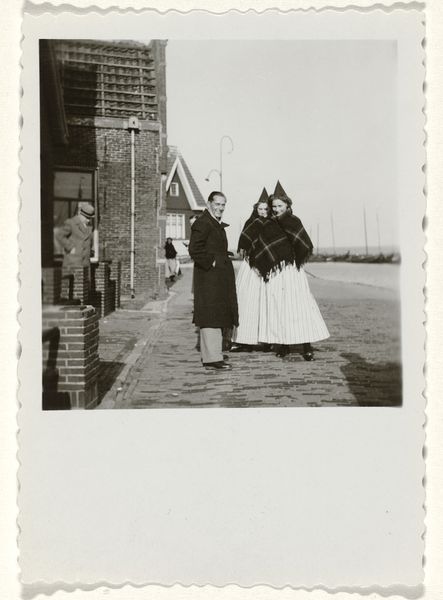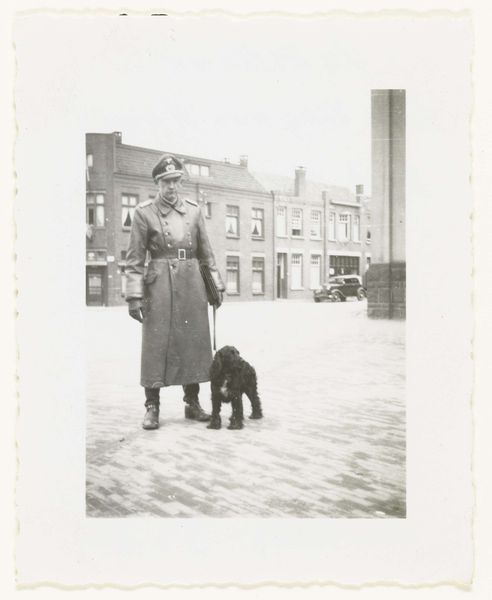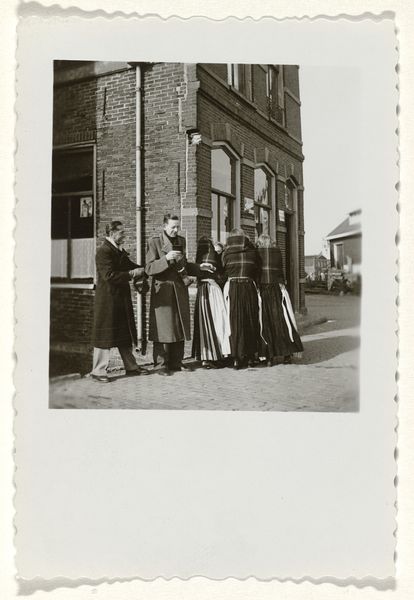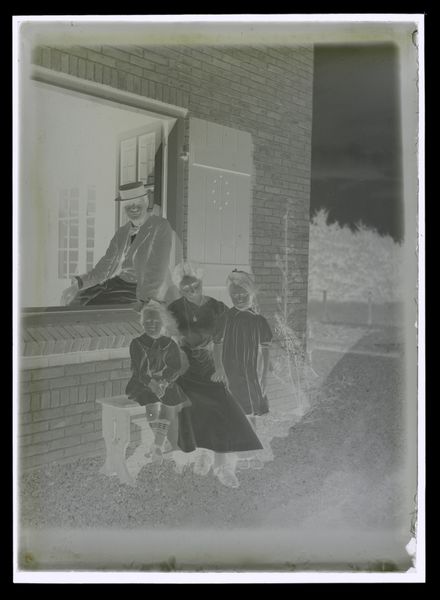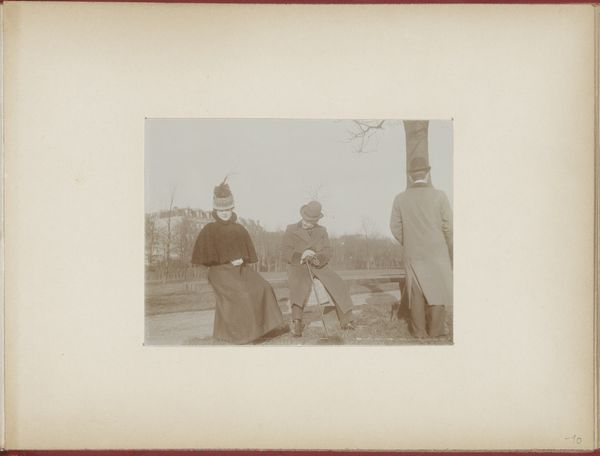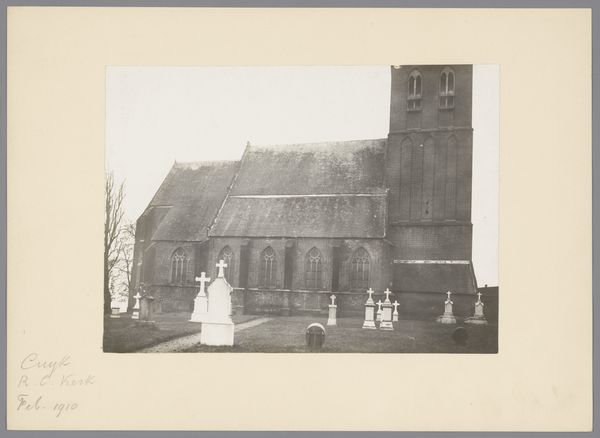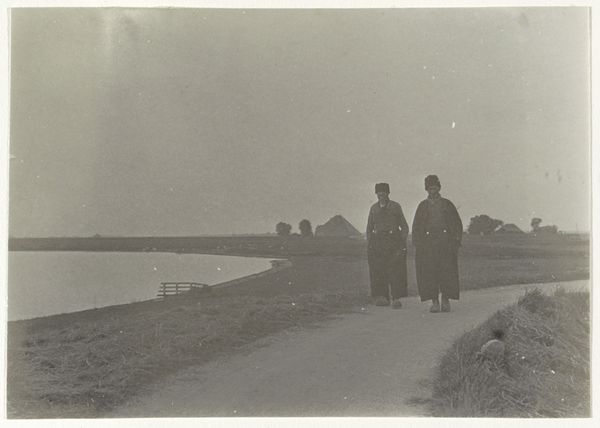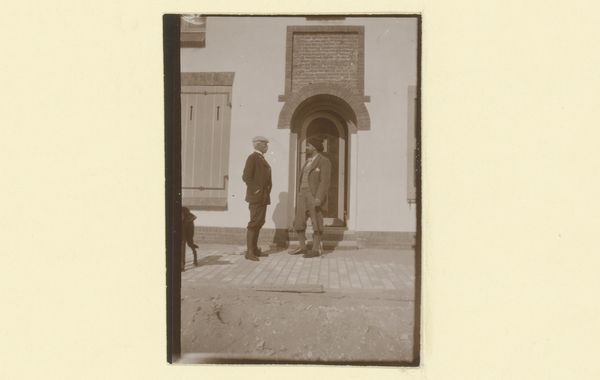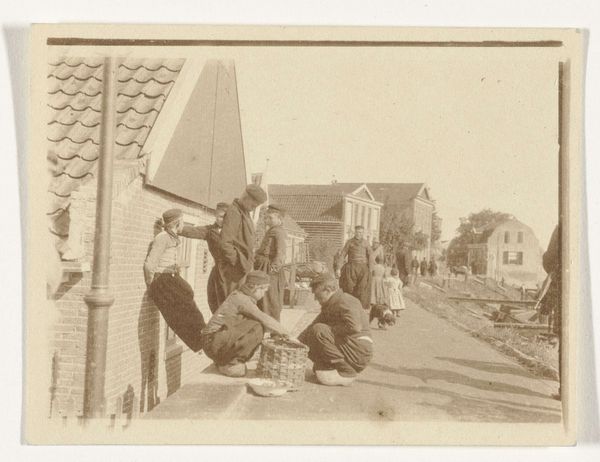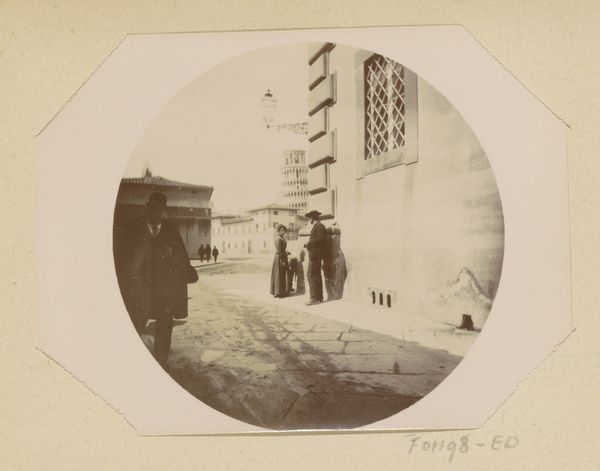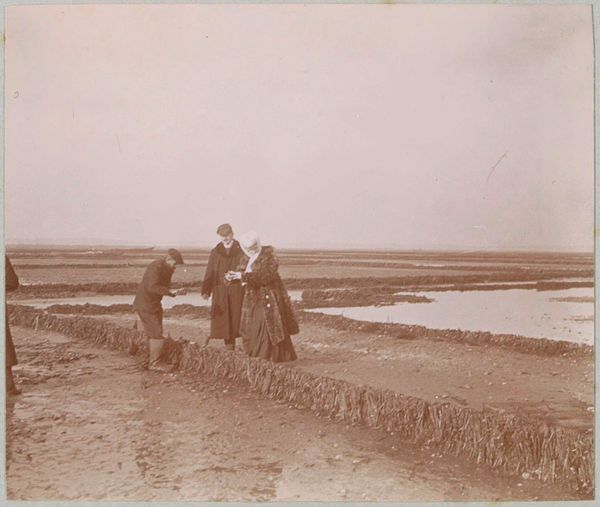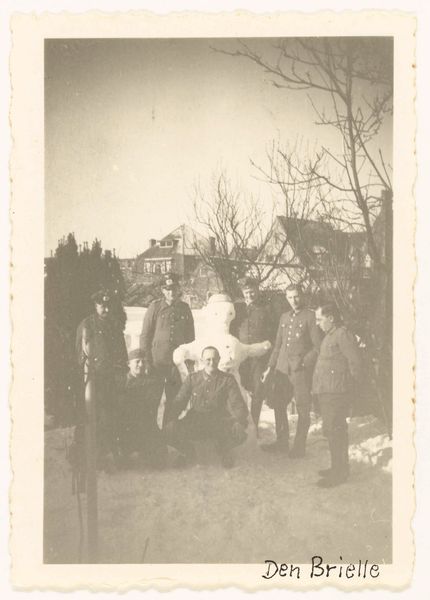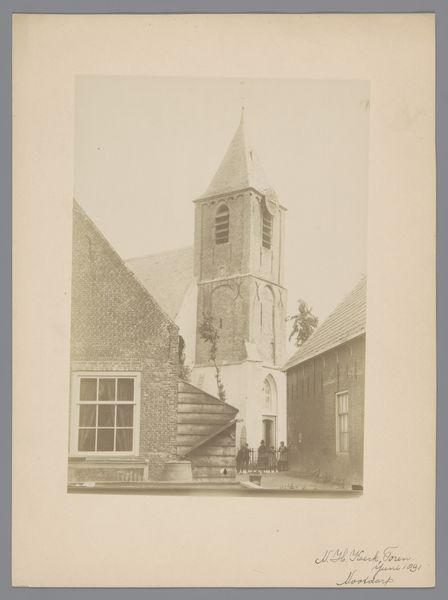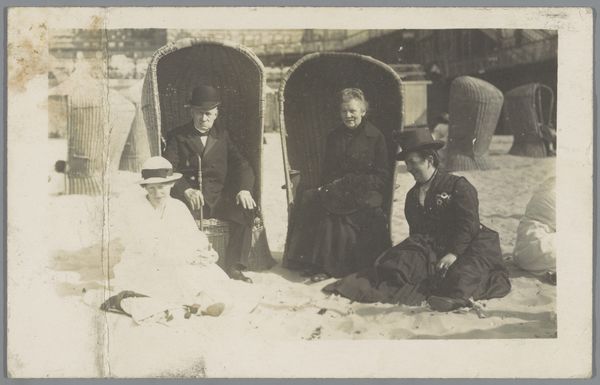
Gideon Elon, de derde echtgenoot van Isabel Wachenheimer, in een Nederlandse stad naast twee vrouwen in Nederlandse klederdracht en een onbekende man 1956 - 1970
0:00
0:00
photography, gelatin-silver-print
#
portrait
#
print photography
#
archive photography
#
street-photography
#
photography
#
historical photography
#
gelatin-silver-print
#
genre-painting
#
realism
Dimensions: height 85 mm, width 60 mm
Copyright: Rijks Museum: Open Domain
Curator: This gelatin-silver print is titled "Gideon Elon, de derde echtgenoot van Isabel Wachenheimer, in een Nederlandse stad naast twee vrouwen in Nederlandse klederdracht en een onbekende man." The photograph is estimated to have been taken sometime between 1956 and 1970. Editor: It feels like a stage play somehow, doesn't it? Staged but spontaneous. I imagine they ran into each other unexpectedly and posed. There’s almost a melancholy to it despite the implied joviality of the man in the center. Curator: The composition is quite interesting. Note the receding lines of the cobbled street drawing your eye toward the vague horizon. The subjects are placed deliberately; the man off-center almost as a dividing line. The sharp focus on the foreground throws the background into soft relief. Editor: Exactly. They are kind of caught, and not only by the photographer’s snapshot. It looks like life presented them a scene and the shot presents it as a captured frame. I’m so intrigued by what is just outside of it. Curator: Absolutely. And, formally, the monochromatic palette enhances the starkness and, arguably, the documentarian realism of this image. We read it almost as a historical record. A slice of life caught in time, rendered tangible through the physicality of the print itself. Editor: There's something about the anonymous figures and their implied narratives that begs further exploration, something hidden below the apparent everyday. But maybe that's the charm; its enigmatic simplicity. What do you think we are supposed to learn from that Gideon's pose, from his smile? Curator: What this work demonstrates, however unconsciously, is photography’s capacity not only to reproduce reality but to produce meanings and affective states, it triggers something of our experience to generate thoughts. Editor: Right. That Gideon, the women dressed so similarly, the other guy and the distant houses on the far of the frame – this all creates an itch in your mind, don't you agree? Curator: I agree. Photography here isn't merely documentation. It’s… suggestion. Editor: Well put. And this suggestion stays with us after we are done witnessing this candid capture of life in the 20th century. Thank you. Curator: You're welcome.
Comments
No comments
Be the first to comment and join the conversation on the ultimate creative platform.
